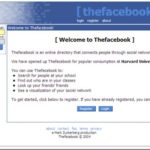Get set for the mobile revolution
Forget the iPhone, it’s all about Android. Find out how harnessing the power of mobile phones could transform your business.
Shane Williamson is a telecommunications consultant who advises small through to large companies on how organizations can better utilise mobile technology.
The self-described “technology evangelist” clients’ include Optus and Deloitte, as well as start-ups looking to enter the mobile market.
 “What I’m seeing at the moment is a need for organisations in Australia to understand where mobiles fit in their companies, and how they can better use that technology,” Williamson says.
“What I’m seeing at the moment is a need for organisations in Australia to understand where mobiles fit in their companies, and how they can better use that technology,” Williamson says.
“Mobile has brought a lot of confusion and a lot of myth with it. People need to understand there are some different ways to do business and different ways to interact with your customers. Mobile is creating this whole new evolution around how people actually run their businesses.”
Using mobiles better
So how can organisations get smarter about mobiles?
“A lot of businesses see mobile as a bolt-on for their business. Mobile should be seen as a strategy across all aspects of their business. It’s about, ‘how am I integrating that device so I’m communicating more effectively within my business, and how are my customers interacting with my business around my mobile’?”
“Just like an IT strategy is developed for a company, there should be a strategy that is developed of how mobile is used within and outside a company.”
Williamson says mid-size businesses should make sure all applications available for mobiles as well as desktop technologies, and says salesforce.com is a good example of a program accessible across mobiles, desktop and tablet PCs.
Trend-setters
Business owners have plenty to gain by staying on top of the latest mobile trends.
Augmented realities – where smartphones layer useful information on a subject shot through the camera – are generating a real buzz in the mobile community according to Williamson.
“For example, you point the camera on your mobile device at the Sydney Harbour bridge. The technology in your smartphone has a GPS, and a compass built in. So it can bring up other data, like here’s the history of the Harbour Bridge, or maybe a map to get up onto the bridge.”
“It will display pretty much any information – it’s literally just point and click.”
Williamson says business applications of augmented realities are gathering speed.
“A hire car manufacturer in Europe uses it for their sales staff. They can hold up (the smartphone) and look down a street, and it will let them know which cars are theirs, who has hired what, which car needs a service.”
iPhone vs the world
Williamson says the iPhone entered the mobile industry and “cracked it open” but isn’t impressed with how the device has evolved.
“They nailed the user experience. At the time, no other mobile competed with them. But the smartphone market has accelerated since they originally launched.”
“Apple really hasn’t done any further innovation than it originally did. There’s been 4 devices released in the market. If you put the fourth device down next to the first one, the user interface looks exactly the same. Other smartphones in that same timeframe have both met what the iPhone has done, and some have exceeded it.”
For Williamson Android-based smartphones are leading the pack, and represent his pick for the business market. HTC and Samsung offer Android devices on business and consumer platforms.
“The iPhone is all about icons. Android is about multi-tasking, and information that is richly displayed directly from the phone. They’ve taken it to the next level where information is at your fingertips, whereas with Apple you have to dig into it.”
Mobile Monday
Want to hear more on the latest trends or applications from industry experts? Get along to Mobile Monday.
The global initiative began in Finland a decade ago as a way for individuals to gather to discuss mobile technologies and developments.
Interest quickly spread, and chapters sprung up around the world. Williamson helped launch the Sydney branch in 2006.
“It’s an industry event designed for the industry, or anyone else interested in mobile technology. Mobile Monday was founded on the idea of having an event so people could easily network and that wasn’t formalized. That’s why it’s in a pub, people can come and meet others and also learn about trends and technologies.”
Sponsored by Blackberry-maker Research in Motion (RIM), events are run monthly and average around 100 people per night. Mobile Monday also has chapters in Melbourne, Brisbane and Adelaide.
“The idea is to promote the Australian industry. We try and bring speakers in from the local industry, or doing a panel or running a training sessions, but mostly it’s about networking.”
“The key here is no agendas – we don’t want sales pitches. We would rather people get up and talk about learning. It’s really about stirring the conversation and getting people afterwards to talk about what they’ve seen, and maybe look at interacting that in their own organsiations.”
So what sort of device does a mobile expert and tech-evangelist have?
“I’ve got the HTC Desire. I tend to grab the latest and greatest, and the HTC Desire has my attention at the moment. It’s a brilliant device because of the faster processer and the nicer screen,” Williamson says.
For more: Mobile Monday Sydney
Augmented reality: A short video explaining augmented reality on smartphones





